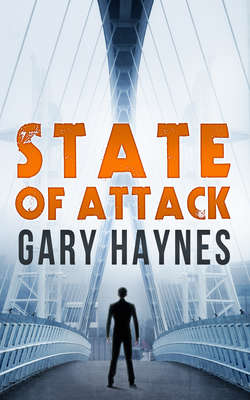Читать книгу State Of Attack - Gary Haynes - Страница 21
ОглавлениеChapter 12
Tom had taken a lukewarm shower in his first-floor bathroom and had put on sweatpants and a T-shirt. He walked downstairs now and out of the kitchen door into the conservatory that ran almost the length of the back of the property and housed his sensitive bonsai trees. He had six inside, planted in ceramic pots, and a dozen outside, the hardy perennials.
There were weeping figs, Californian redwoods, junipers, Black Hills spruce, and bald cypress. He’d spent the last two years doing his best to re-create what he considered the greatest bonsai of them all, an imitation of the five-needle pine. The original, some five hundred years old, was one of the National Treasures of Japan and was documented as having been cared for by a Shogun.
Stepping forwards to a wooden table, he unfurled a cloth wrap-around and stared at his collection of bonsai tools. They were held in place neatly by their individual pockets, like an electrician’s kit: the leaf trimmer, the root hook, the branch bending jacks, and the concave cutter. The bon referred to the tray-like ceramic pot, with drainage holes, in which the miniature trees grew. The sai meant cultivation. The pot confinement kept the trees small, together with regular pruning of the roots and crown. The bending jacks were used to create the hanging branches effect.
His five-needle pine was on a bed of coarse sand and Akadama clay pellets, imported from Japan. He breathed in, began to prune the branches, taking particular care, as excessive pruning could kill the tree. Twenty seconds later, he wrapped some copper wire around the trunk and used a length to connect two branches. Then he watered it: a growing work of art.
That done, he walked back out of the kitchen to the living room and settled down on his ox-blood sofa, with a book of Picasso paintings in his hands. After flicking through a few pages, he focussed on Woman Ironing. Truth be told, he always focussed on this representation of the Spaniard’s masterpiece. He’d seen the original in the Venetian Hotel’s Guggenheim gallery in Vegas ten years back. It’d lingered in his mind like an exotic view experienced on a vacation, or the face of some former girlfriend.
The painting was superficially mundane, the colours of an overcast day, and had hung on the gallery’s steel outer wall via magnets. Painted in the master’s Blue Period, it was the study of a near-emaciated young woman hunched over a heavy iron, pressing a shirt. The woman appeared to be worn out. A sympathetic portrayal of the exploited poor, he’d read; a study in melancholy. Looking intently at it now, she reminded him of his mother.
He stood up and walked over to his drinks cabinet and fixed himself a Jack Daniel’s and Coke. No ice, about three fingers’ worth. Sipping his drink, he realized he had to focus on the living rather than the dead. After he’d gotten a little closer to his father, he’d questioned him about Dan Crane, the enigmatic CIA operative who’d watched his back as he’d tracked down the Secretary of State after she’d been kidnapped in Islamabad thirteen months ago.
His father had told him that he’d gone to Beirut to rescue Crane from Hezbollah in the eighties, and, unofficially, had paid for his release. Crane hadn’t given away the general’s identity to his kidnappers, so the general couldn’t give up on him, either. It was a code of honour between men and women who risked their freedom and lives on a regular basis, Tom knew.
Tom’s next assignment was a so-called mannyguarding, the close-protection of a foreign diplomat’s child, and he was getting sick of it. Crane had offered him a job in the clandestine services provided by the CIA after he’d been responsible for saving the secretary, and, taking a hearty slug of the Jack and Coke, he knew that that was getting more appealing by the day.
He looked over at the book once more, at the Woman Ironing. His mother was dead; it had been a shitty life in the years between his father leaving and her death. But bitching about it to the man who hadn’t even left him with his surname would mean he would become a sullen bore, and Tom had resolved to make things right between them.
